Fall Symposium on Digital Scholarship 2023
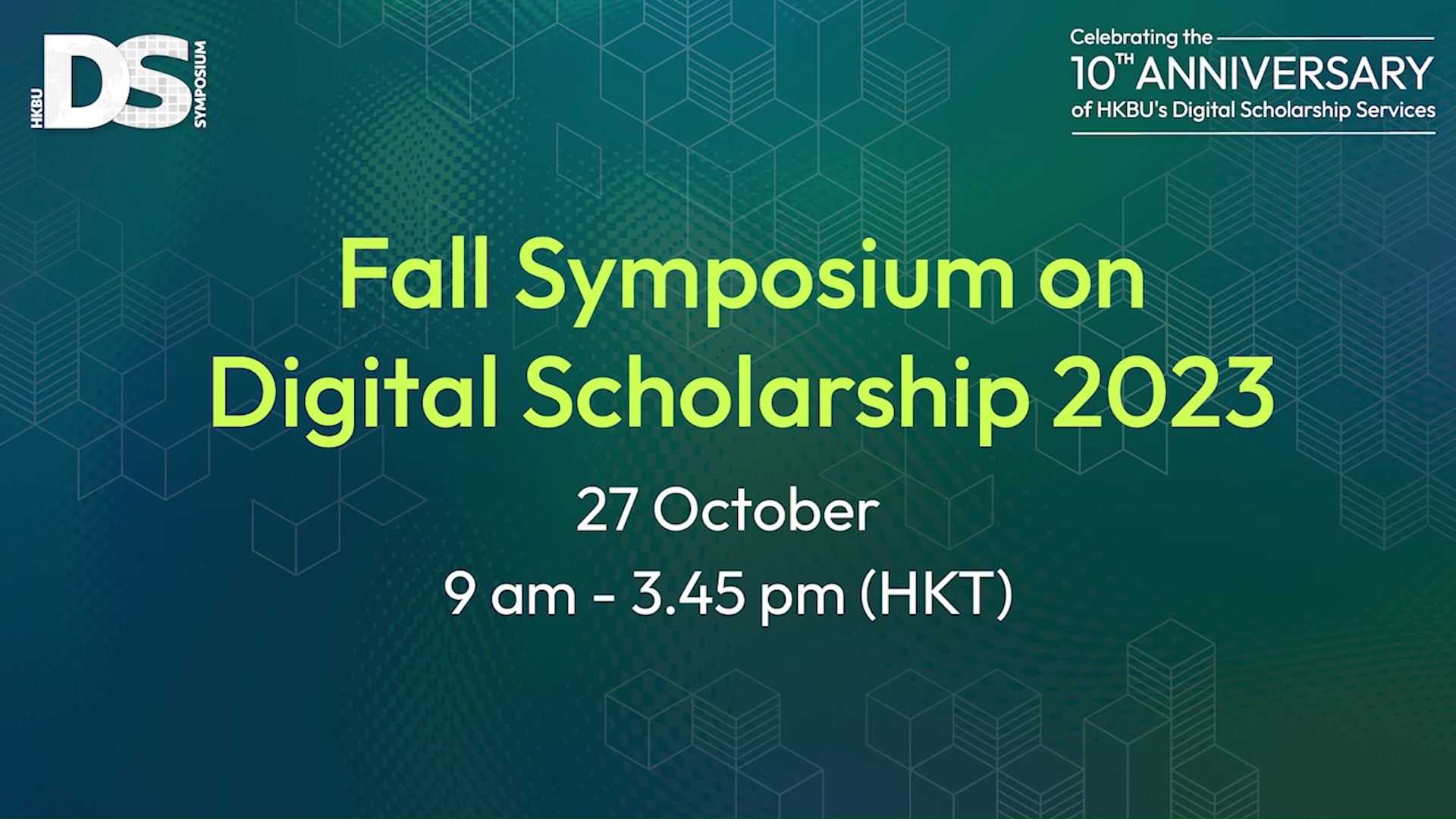
Fall Symposium on Digital Scholarship 2023@HKBU
2023 | 11 mins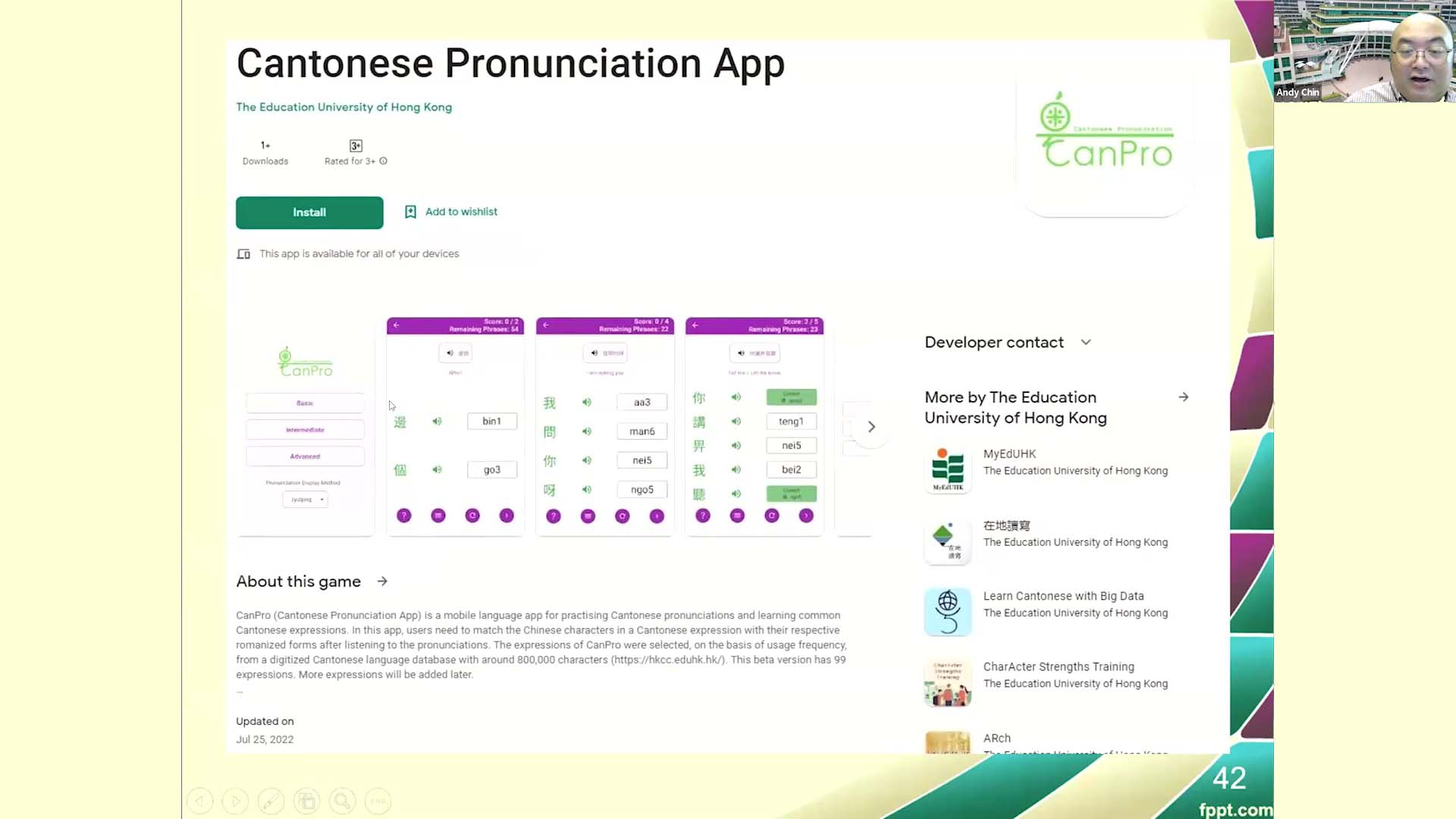
Transforming Humanities Research into Digital Humanities Research: The Corpus of Mid-20th Century Hong Kong Cantonese
2023 | 43 mins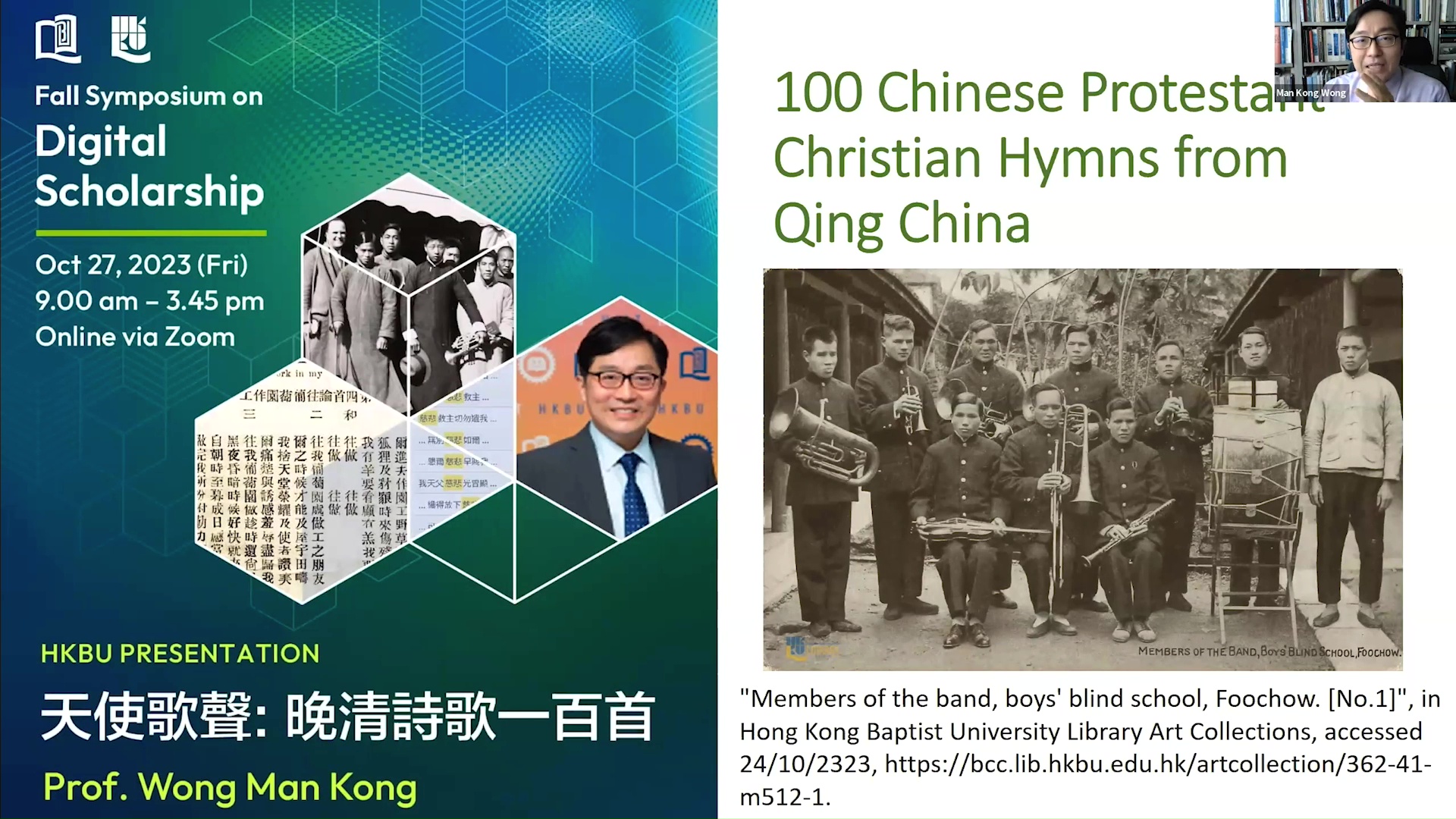
100 Chinese Protestant Christian Hymns from Qing China
2023 | 40 mins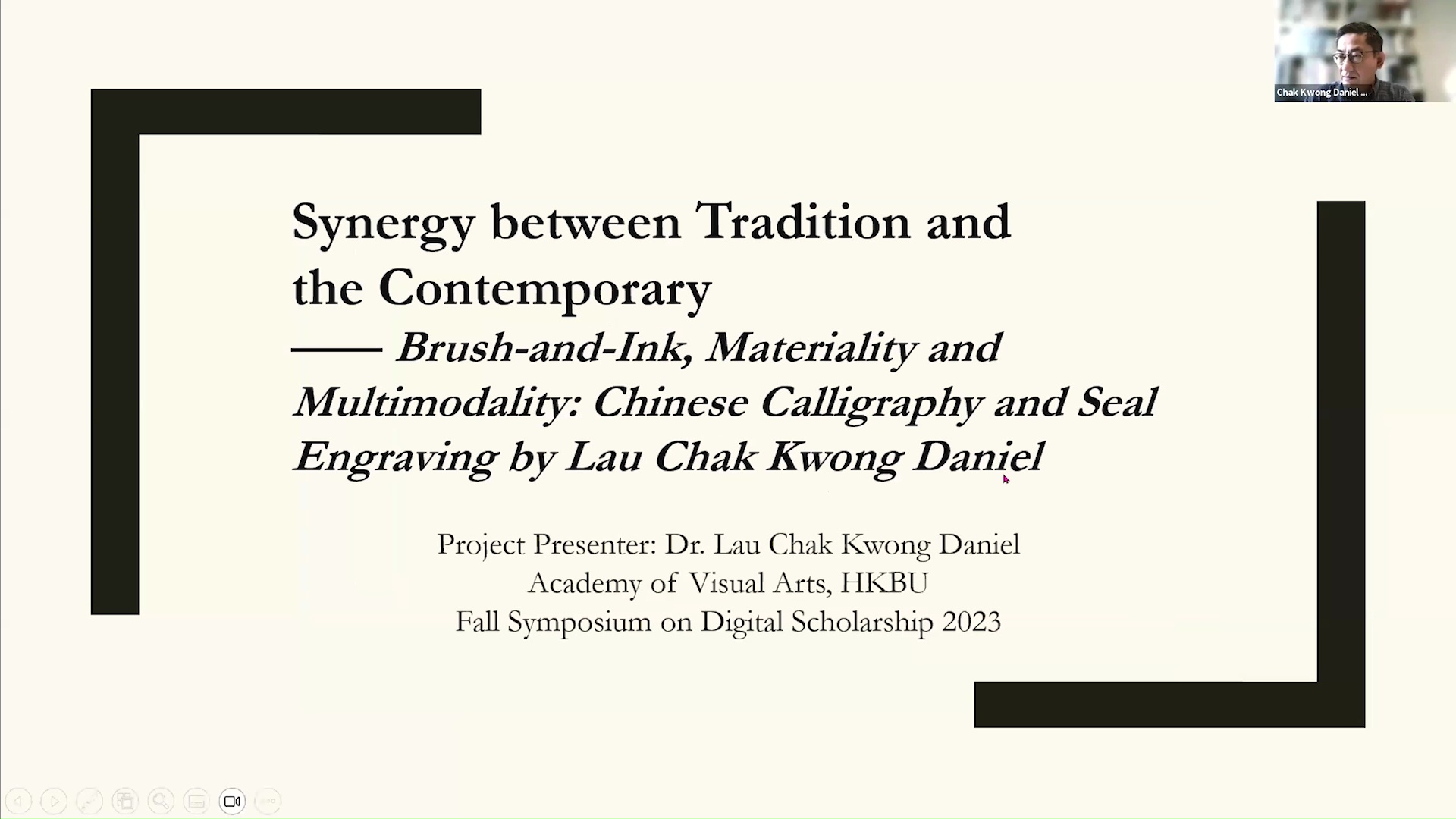
Synergy between Tradition and the Contemporary – Brush-and-Ink, Materiality and Multimodality: Chinese Calligraphy and Seal Engraving by Lau Chak Kwong Daniel
2023 | 37 mins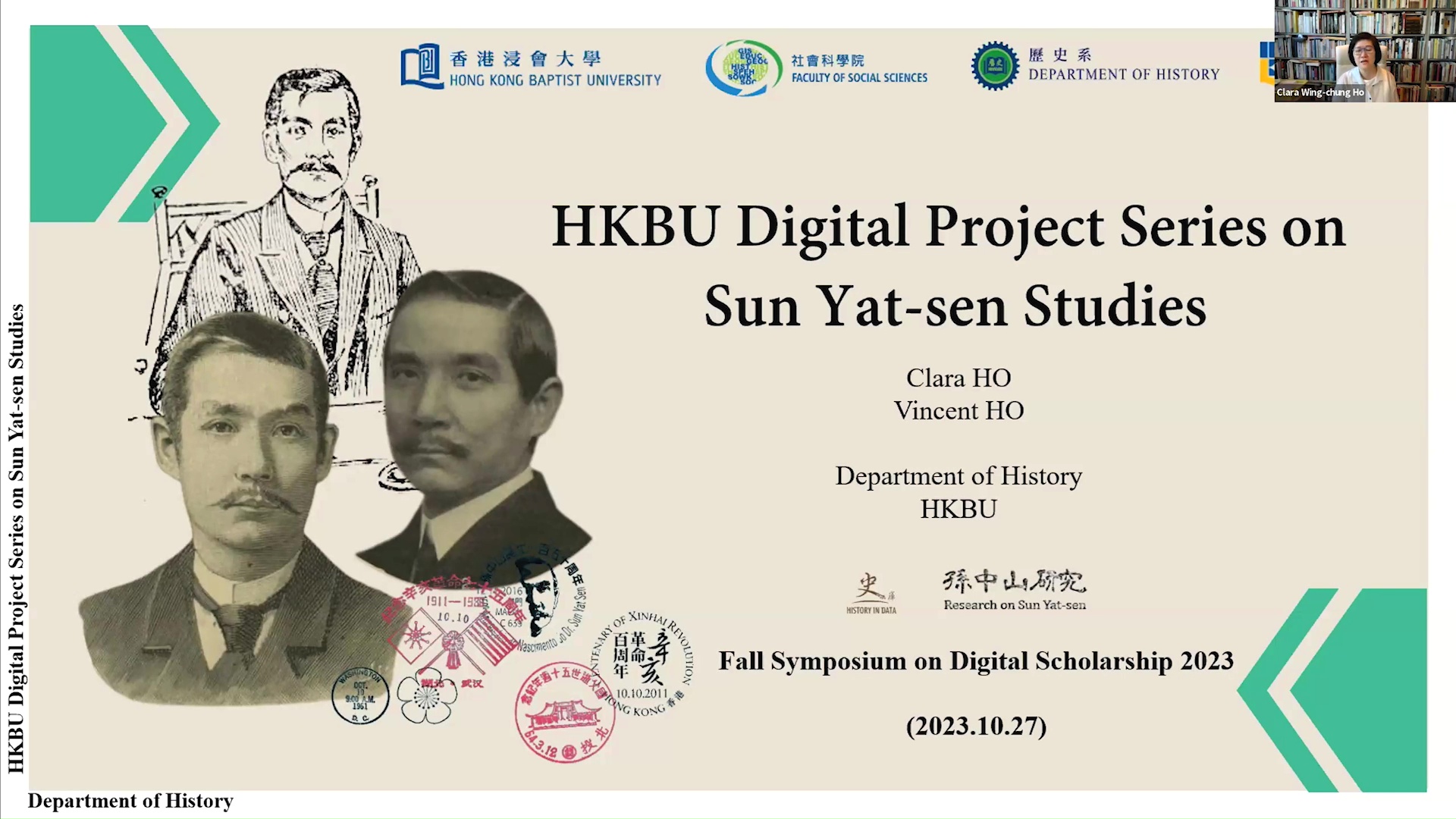
HKBU Digital Project Series on Sun Yat-sen Studies
2023 | 35 mins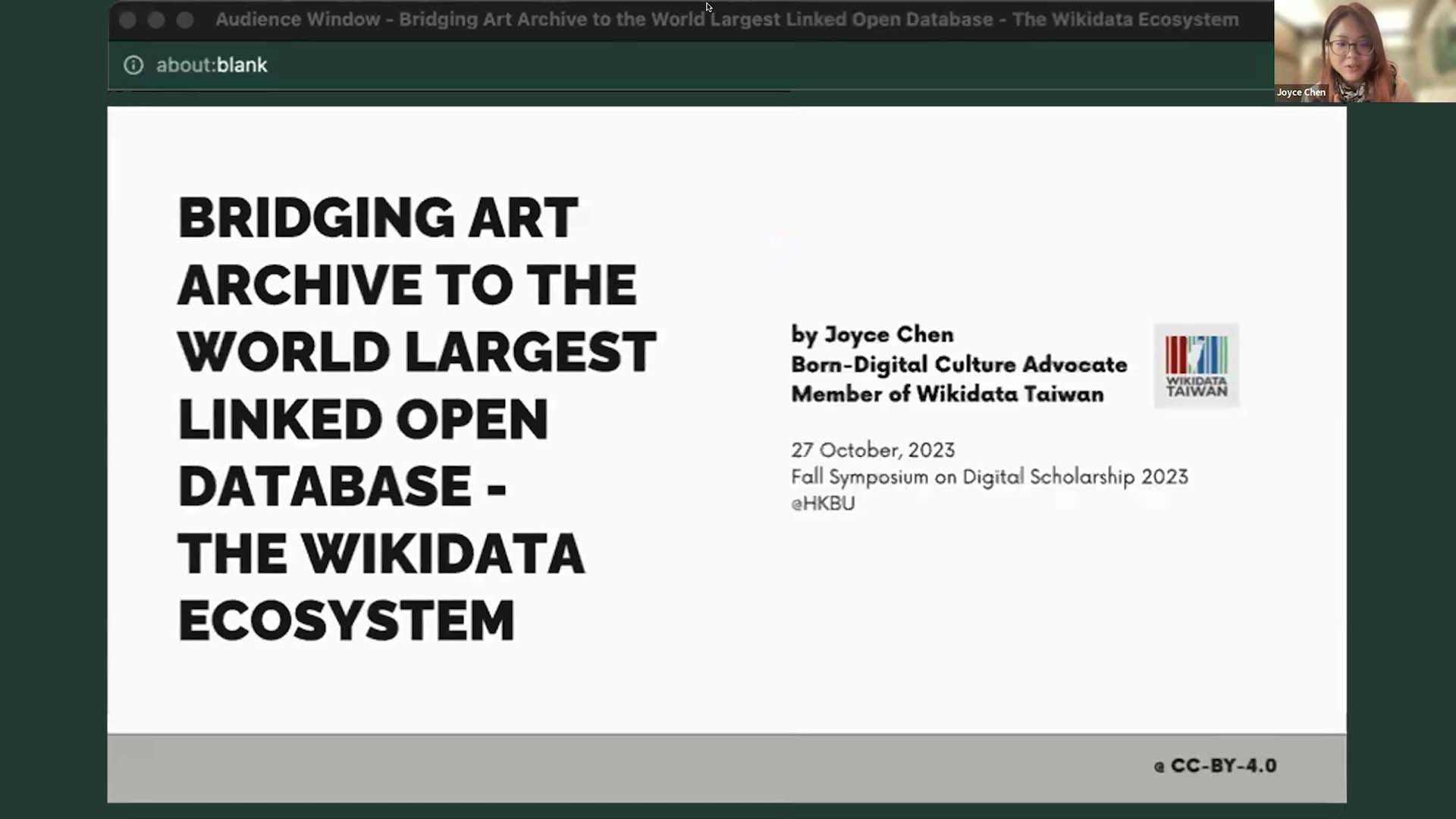
Bridging Art Archive to the World Largest Linked Open Database - The Wikidata Ecosystem
2023 | 45 mins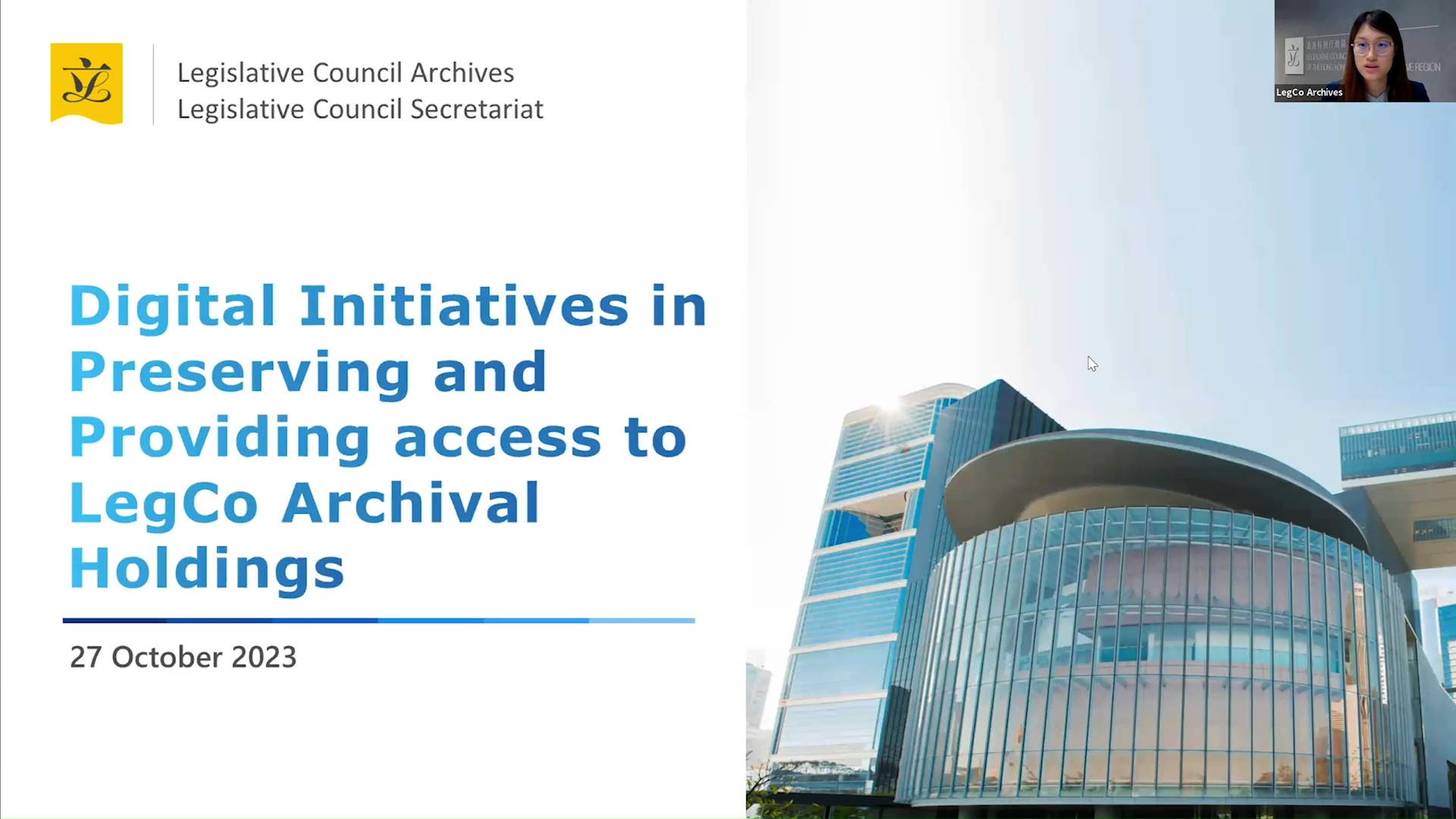
Legislative Council Archives: Digital Initiatives in preserving and providing access to its archival holdings
2023 | 36 mins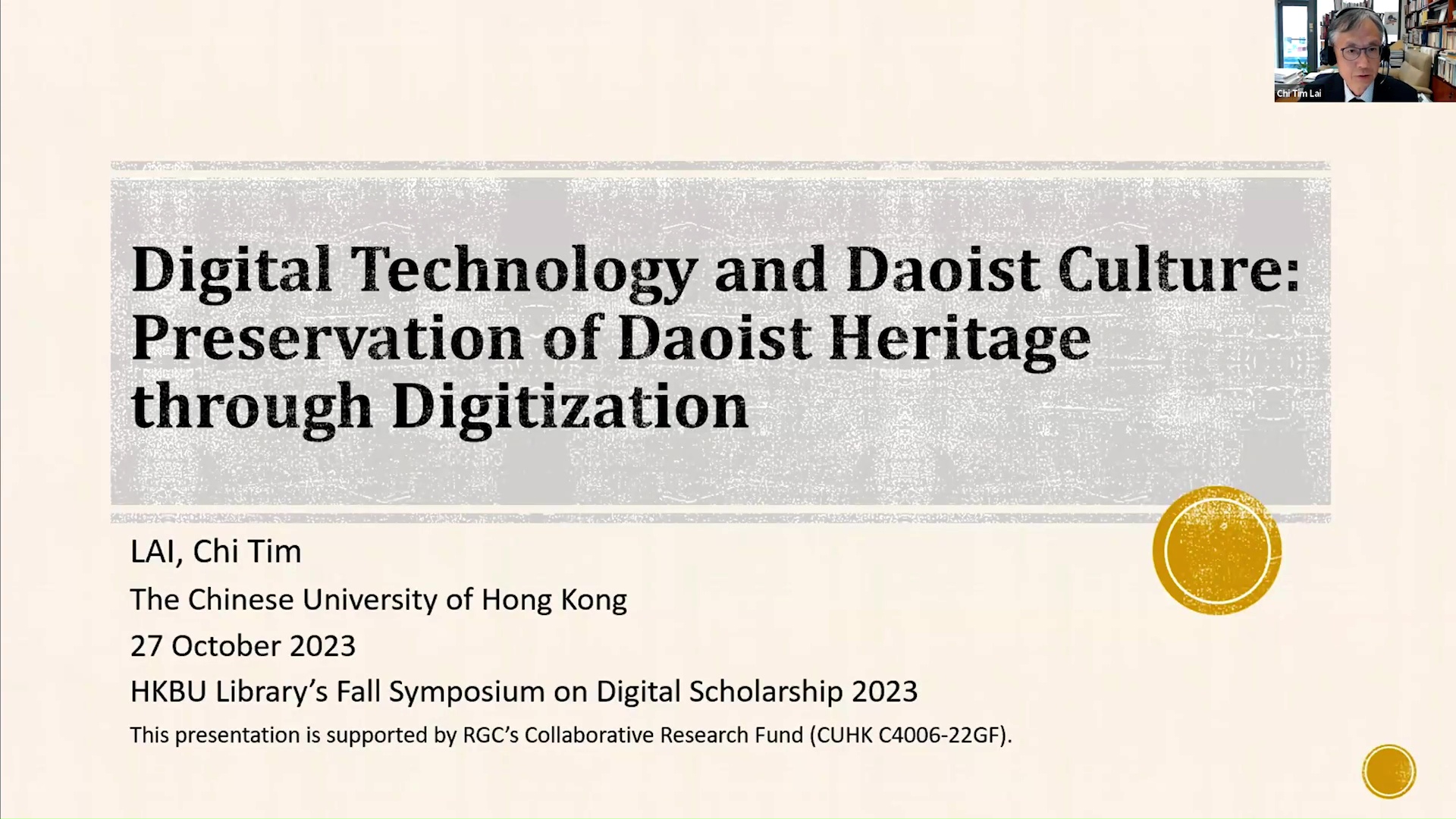
Creating a Digital Database on Daoist Literati and Gentry in Guangdong
2023 | 58 mins
Author talk by Tim Tim Cheng
2025 | 81 mins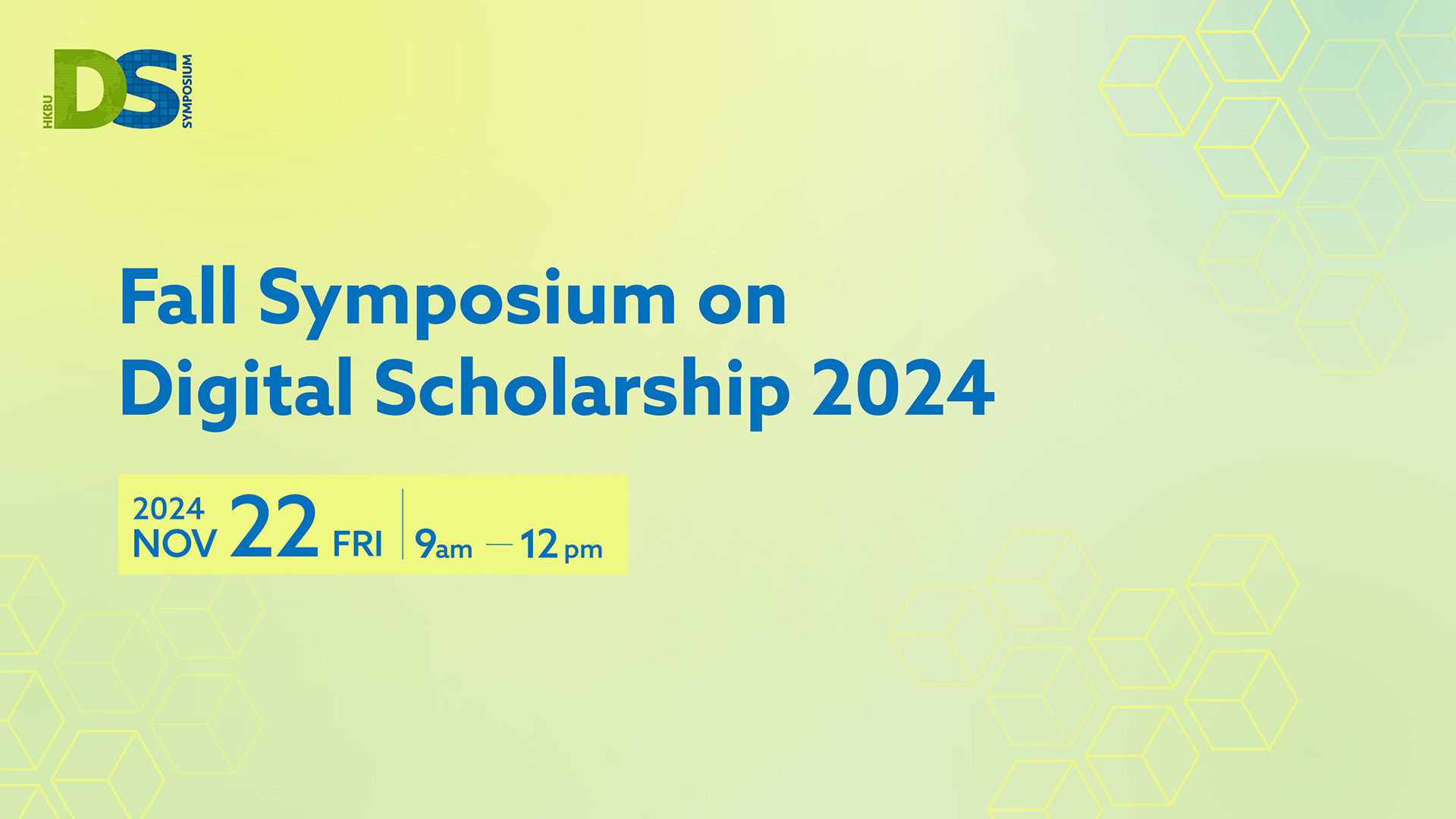
Touring Ottoman Lands: Murray's Routes for Southwest Asia, 1850-1900
2024 | 29 mins
Using Gemini to support OCR in archaic Chinese materials - a case study
2024 | 29 mins
From Grain to Grid: Digitizing Mortise and Tenon's Legacy
2024 | 24 mins
The Japanese Occupation of Hong Kong: A GIS-based Interactive Map Project
2024 | 23 mins
Bridging Tradition and Innovation: Proposing an Adaptive, AI-Driven Research Ecosystem for Humanities
2024 | 73 mins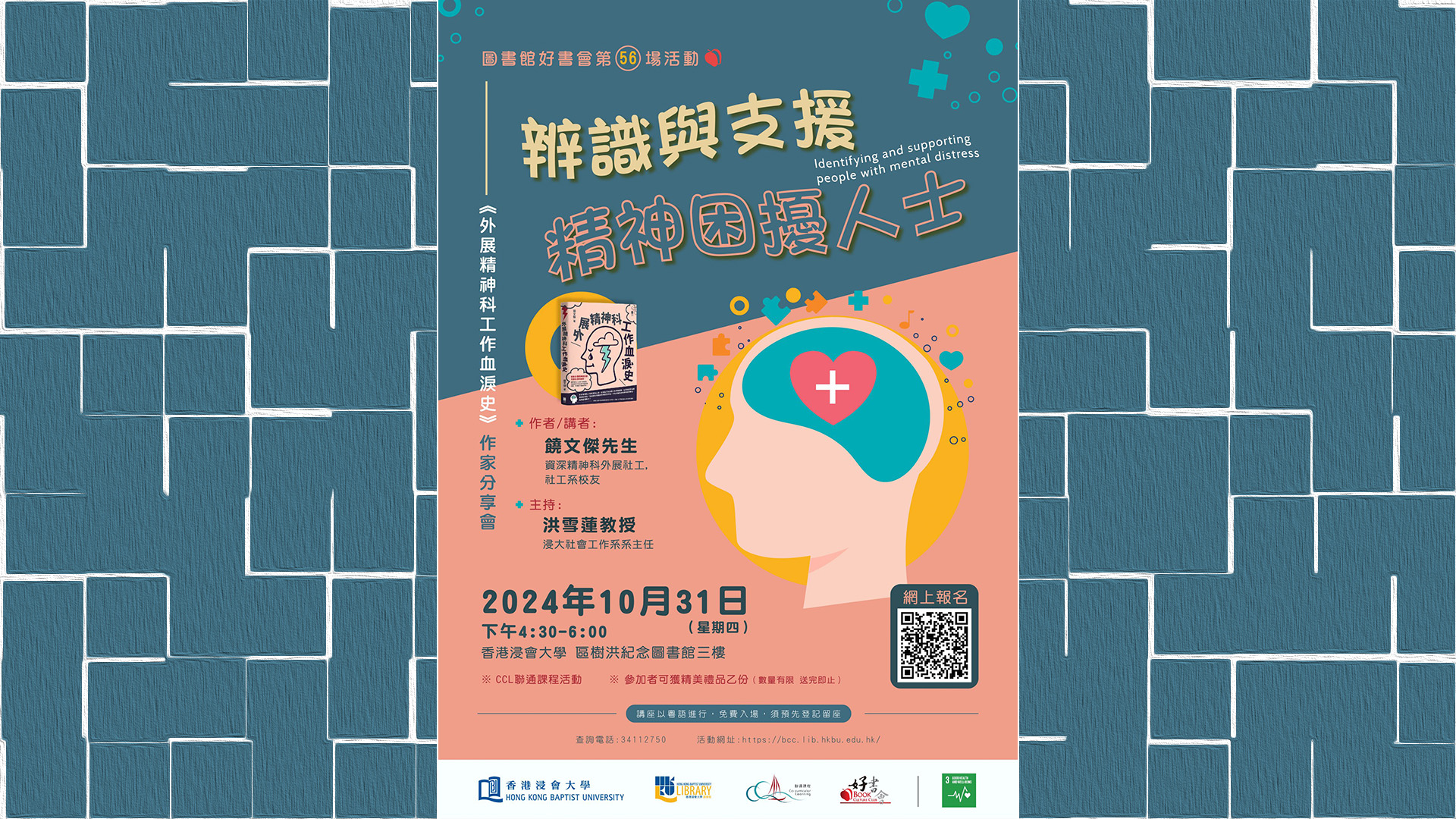
辨識與支援精神困擾人士:《外展精神科工作血淚史》作家分享會
2024 | 82 mins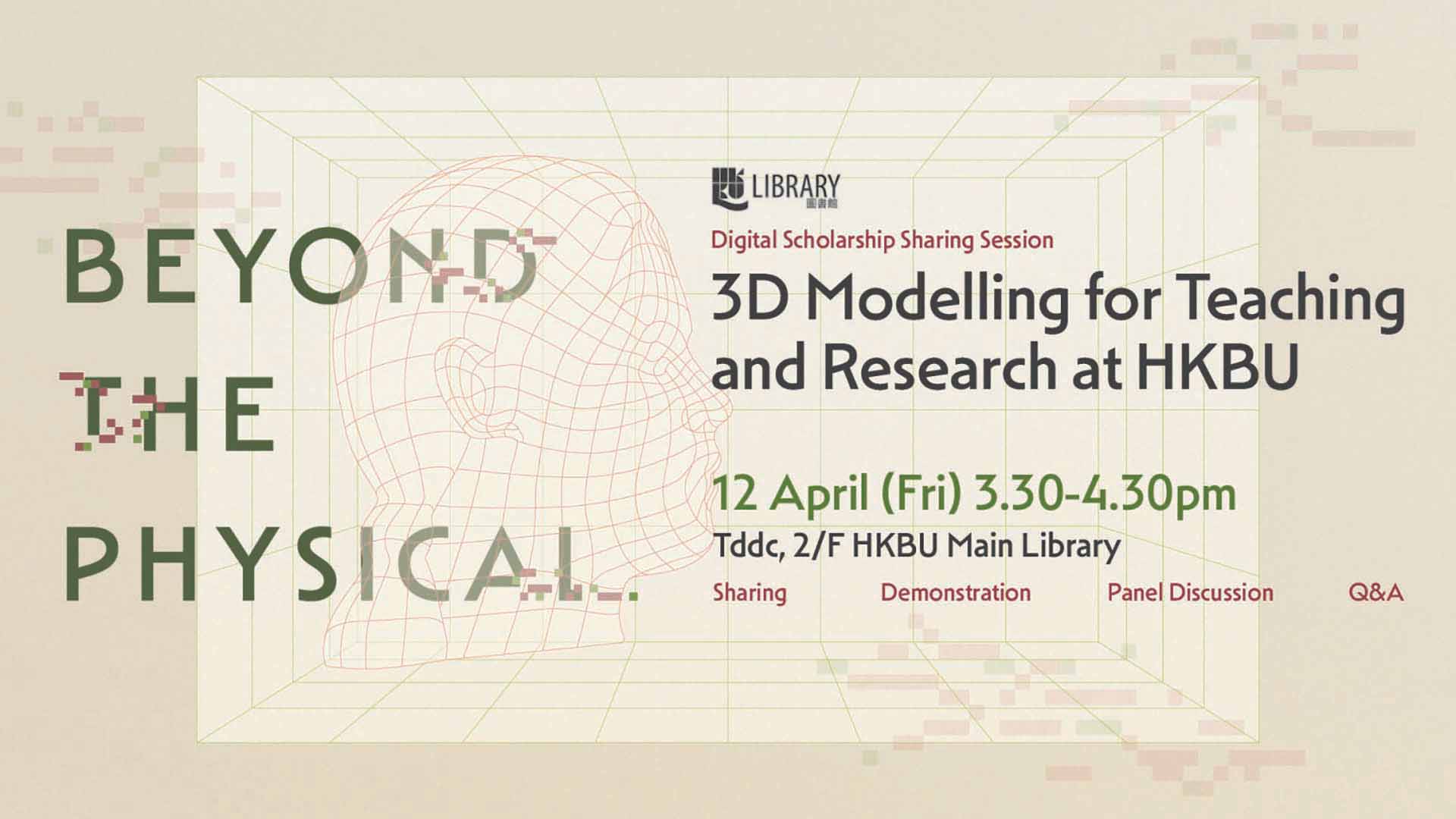
Beyond the Physical - 3D Modelling for Teaching and Research at HKBU
2024 | 60 mins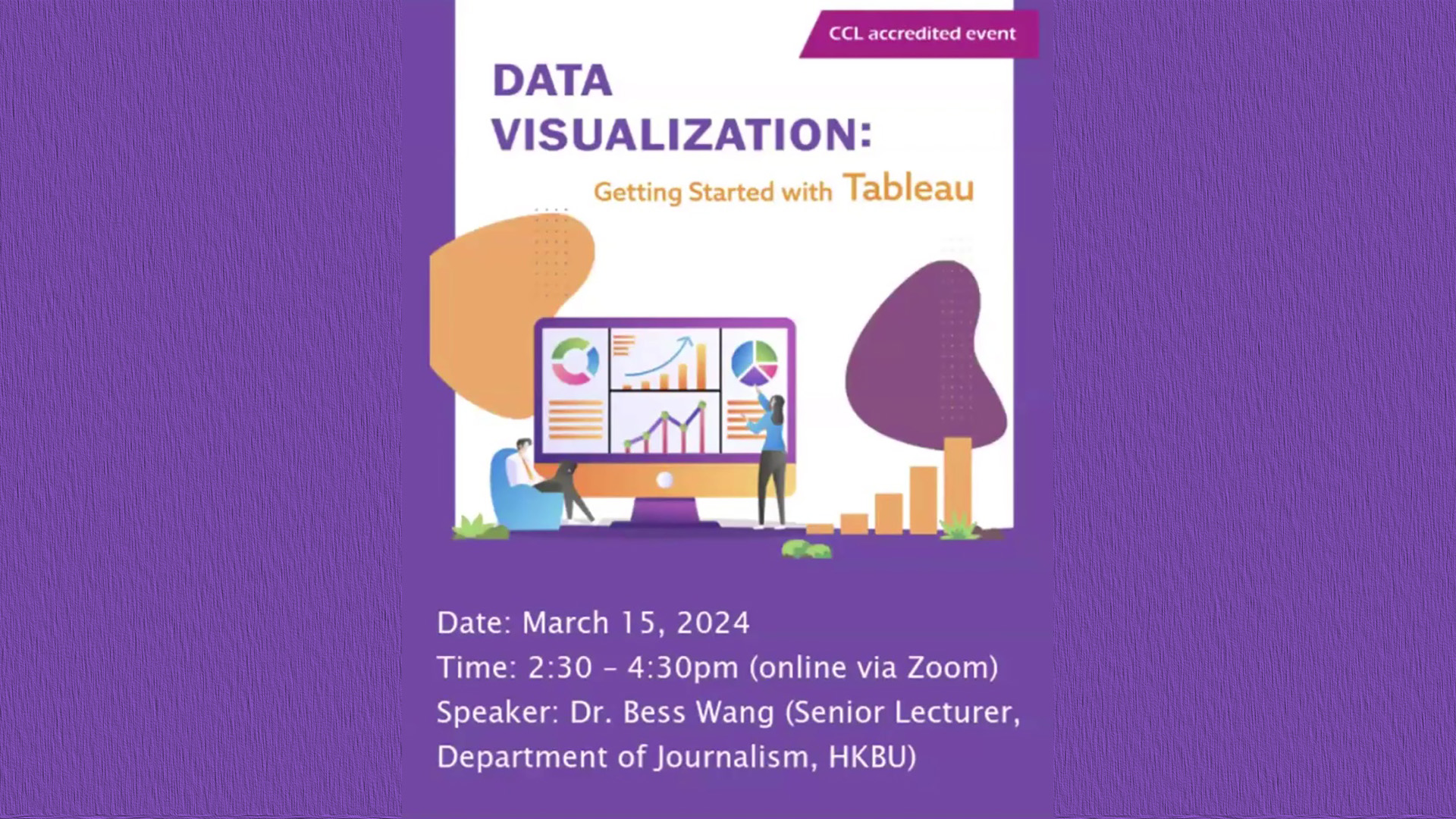
Data Visualization: Getting Started with Tableau
2024 | 125 mins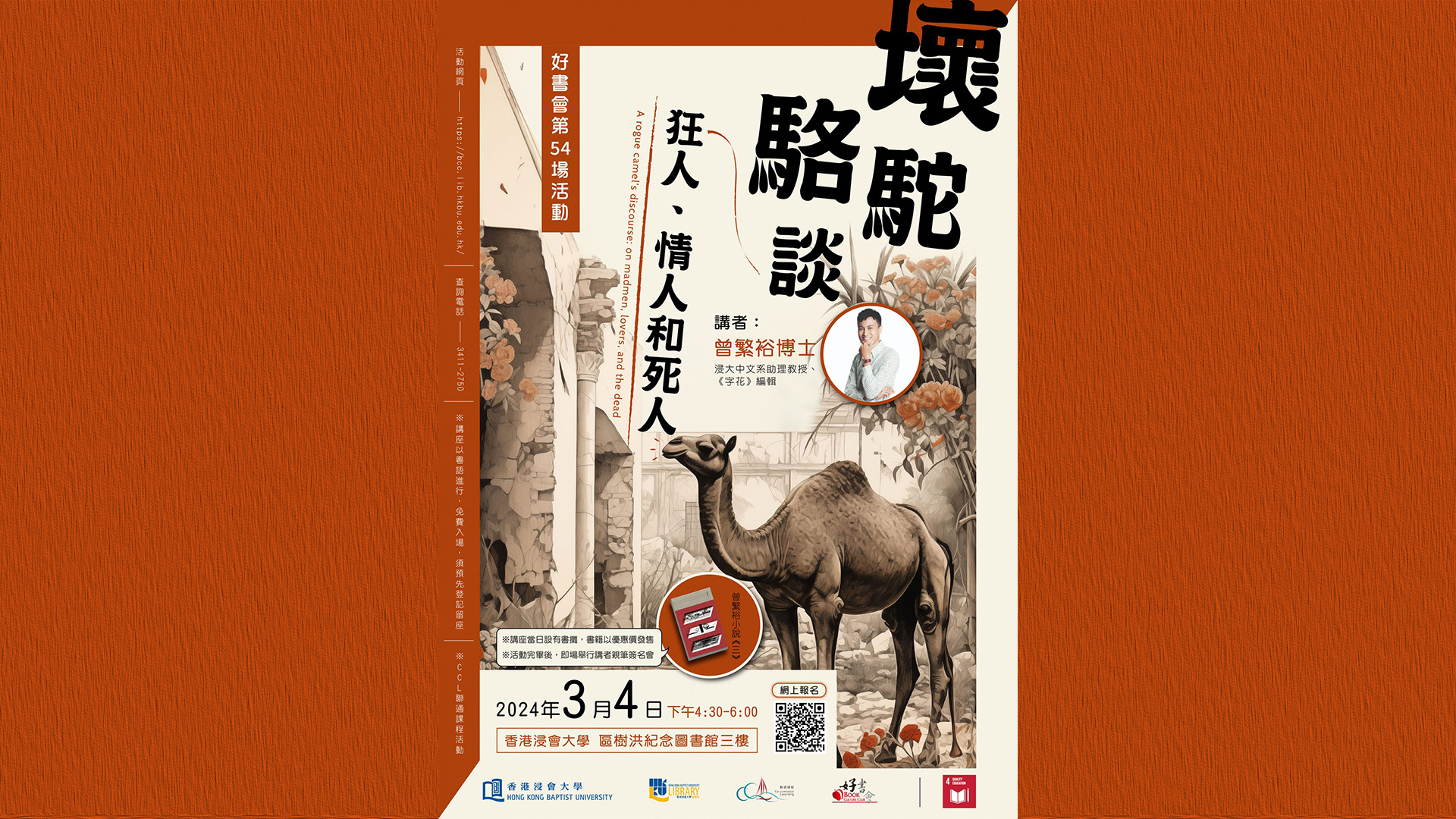
壞駱駝談狂人、情人和死人
2024 | 79 mins






